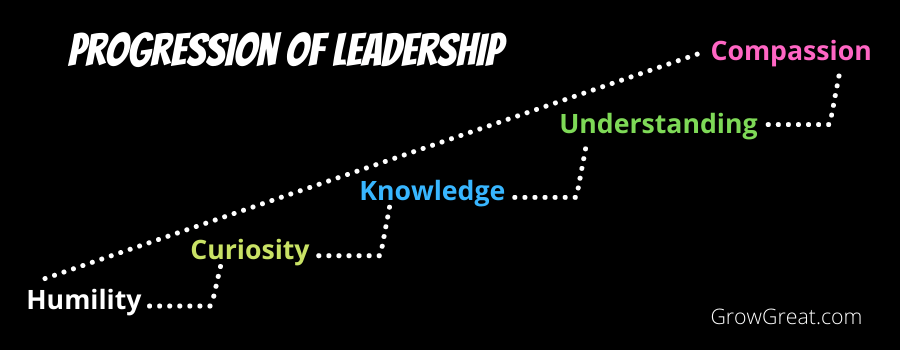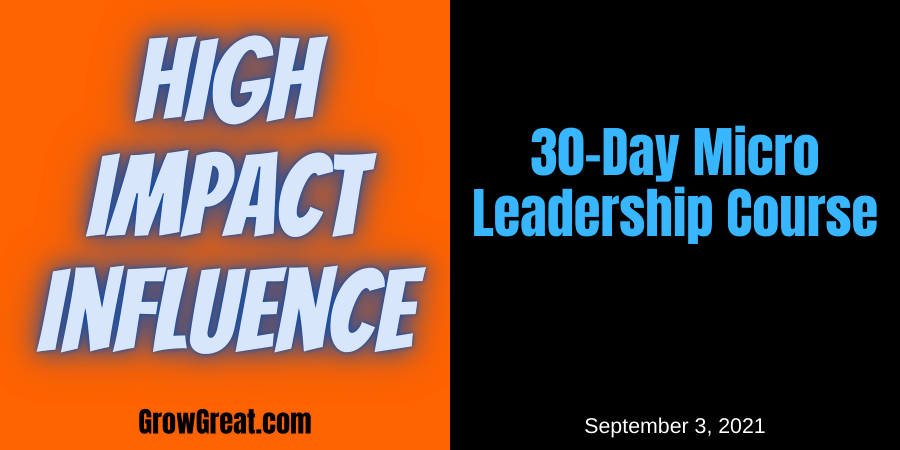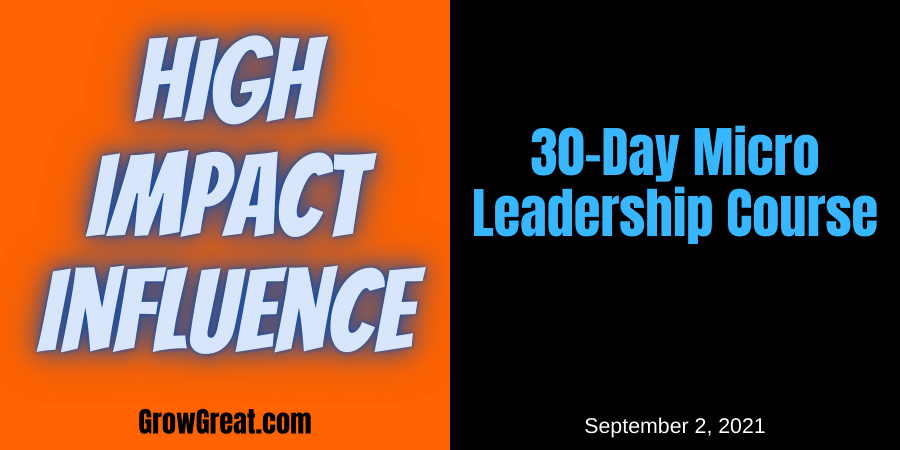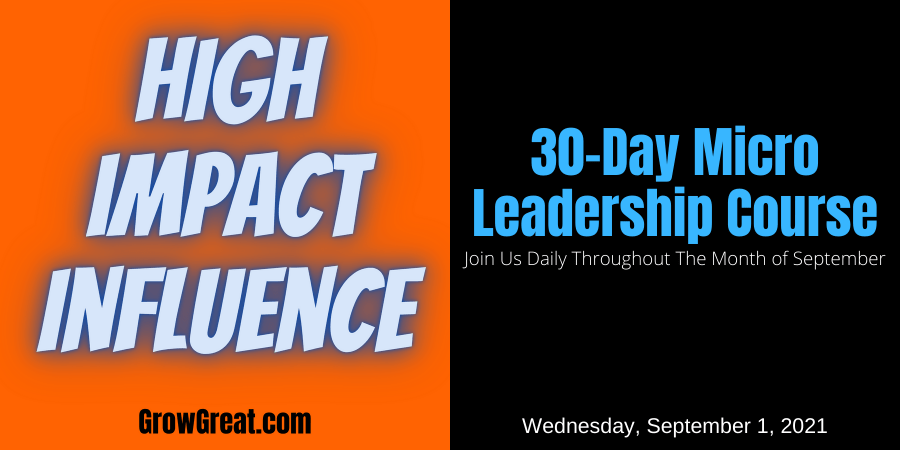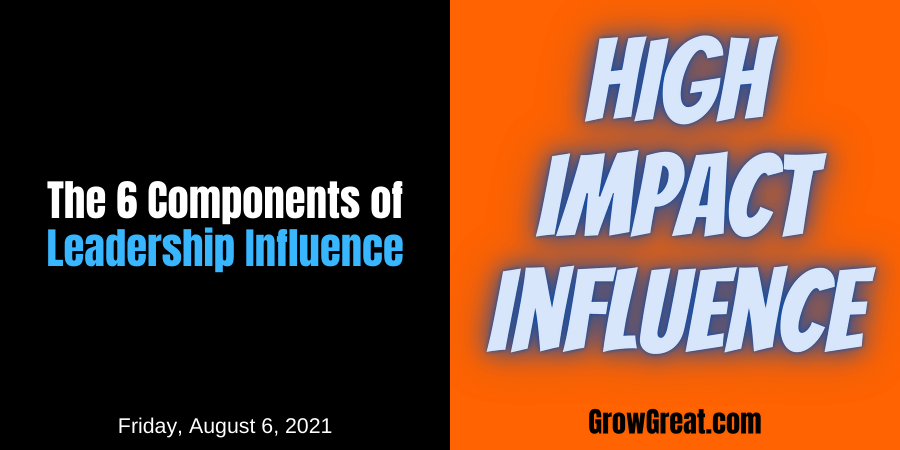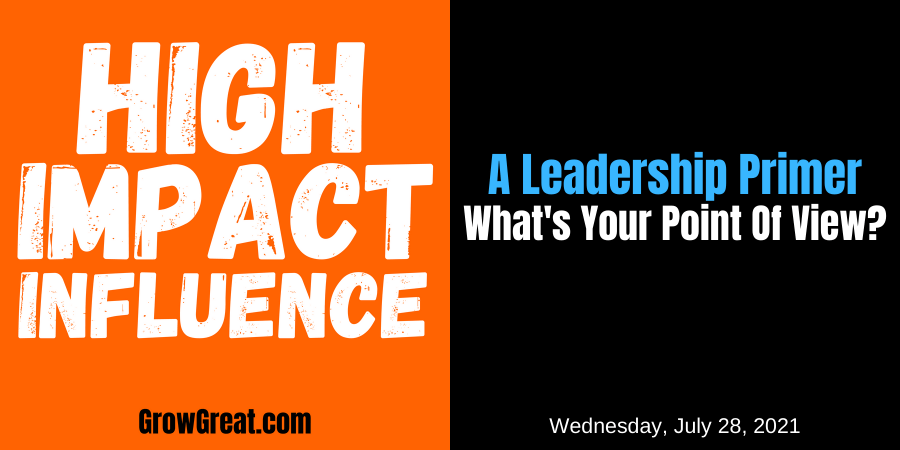Podcast: Play in new window | Download (Duration: 22:39 — 20.7MB)
Subscribe: Apple Podcasts | Spotify | | More

Transcript of today’s special episode where I pull back the curtain on my coaching process.
Welcome to high-impact influence the podcast.
The website is Grow Great dot com, you can also get there by going to High Impact Influence dot com, but Grow Great dot com is just easier to remember. I’m your host Randy Cantrell coming to you from Dallas Fort Worth, Texas.
We’re winding down August.
And I thought today we’d just fire things up and answer some frequently asked questions.
I will tell you that I have, really since the beginning of summer, and frankly, a little bit before I had the idea if somebody would let me kind of record one of the coaching sessions, I just thought it would be incredibly valuable so that people could kind of see how the sausage is made, did not anticipate it being quite as difficult to get someone to be agreeable to do that.
said, you know, we won’t use any names. And we can even kind of, we can even kind of script out a little bit, you know, bullet point, kind of what we want to talk about, but just to give some people an idea, and nobody wanted to take me up on it, which is fine, I get it. I get it. The reason for it is because I’m regularly asked what’s different. Because if you go to the website, and you check my about page, which is I think it’s really titled, work with me, I’ve said forever, the way that I operate is just very, very different.
And I can tell you straight up why. Because the way that I operate is not scalable. I mean, not at all, it’s a horrible business model. I just don’t happen to care, because it’s the way I roll. And it’s the way I’m kind of wired to roll. And clients get enormous benefit. So they tell me from it, it is incredibly personal and confidential, which is why people were very reluctant to even anonymously, kind of pull the curtain back.
I say on my website, and it bears repeating here.
Consulting is give a man a fish, just do this for me. I don’t I don’t want to learn how I just need somebody to do this work for me. And I don’t do that coaching, we typically think of it as teaching a man to fish coach a man how to fish. I don’t do that either. Instead, I want to help you figure out do you even like fish? And so if I had to sum up all of my work, I would sum it up in the phrase, your ideal outcome? What is your ideal outcome? clients are stuck. They are going through some particular crisis. There’s been some events, some circumstance, some situation that hasn’t derailed them, but kind of sorta, I come in during moments where there’s high levels of pain, high levels of suffering. And largely, it doesn’t matter who’s at fault, right? We all get fixated on well, where can I assess the blame? We focus on responsibility, we focus on individual personal responsibility, and how we can best be served. And so part of the frequently asked questions, I guess, the most honest way for me to answer the question of, you know, how do you operate? And how is it different?
In the coaching space, you really need to work at scaling, if you want to make any kind of income from it. And while earning a living is important to me, it’s not the priority. And it’s not because I’m Noble. It’s because I’m frugal. And it’s because I don’t need much money. And is because at this age in life as a mature guy who’s got a lifetime of experience, it’s just really important to me, to not only pass it on but to help other people figure these things out for themselves. And so, I’m very fixated on my practice in helping people figure it out for themselves. It doesn’t matter if I figure it out for you. You got to figure it out for yourself. It doesn’t matter what I believe in what I think and what I feel it matters what you think and feel and believe because it’s going to ultimately matter what you do. So let me very briefly describe to you the three stages that a client goes through in my coaching.
I help every client paint themselves into a corner. Now tap the brakes. I know that doesn’t sound like the most appealing place to go. But it’s the most valuable place that you can be. That corner represents literally back up against the wall. meaning you’re now without excuse, it doesn’t mean that you’re responsible for everything that’s happened to you, it doesn’t mean that the problems that you now experienced where you’re doing, they might have been, but they might not have been. I mean, I’m working with some top-level leaders right now. And they’re fighting this fight that everybody seems to be fighting in, trying to find people trying to hire people trying to retain people.
Others are also battling that battle. But simultaneously, they are trying to fight the fight of having a high-performance culture, and trying to build that, or trying to improve upon that, or trying to, at some level, maybe even maintain that. And then there are countless, countless of us, who’ve got problems that don’t have anything to do with work. We’ve got situations, we got situations at home, we’ve got situations with family, we’ve got situations with health. And these seem to not be so fixated on our professions, or our titles. And yet, here we are because we’re all human. And we’ve all got these kinds of problems and situations. And while everybody can say, Well, you know, you just leave that at the door, none of us do. The whole human being comes into the office, the whole human being is on a zoom call, there is no checking it at the door, there’s no checking it at the door, if you have received a bad medical diagnosis or someone that you care deeply about has, and you have been rocked, and your knees are buckled. And you’re a good employee, you’re a good leader, but this is now your world, this thing that you weren’t all that worried about some days before. Now you are completely preoccupied with that. So now what ideal outcome, the ideal outcome.
And I try as best I can to channel clients to think about how they can influence that. You know, there are some people that can say, Well, listen, my ideal outcome would be to win the Powerball lottery and be a billionaire. Okay, well, other than buying a lottery ticket, which is stupid and foolish, in my judgment, there’s nothing you can do to influence or facilitate making that happen.
That doesn’t qualify as a good ideal outcome may be a grand wish. But it’s not a good ideal outcome, what’s a good ideal outcome for you? Well, that’s for you to decide. But again, something that you can influence, and something that isn’t colossally selfish, something that isn’t destructive to you or to others. So I’ll put those qualifiers on it, what do you most want to happen, that you’re willing to put in some work in order to make it happen? It might not, there are no guarantees.
But this much can be guaranteed if you don’t give it a go, it certainly isn’t going to happen. So step one is to help clients paint themselves into a corner. And it’s a great place to go. But only the bravest go there. And when you’re in this corner, and all of us need to be in that corner, because that’s where our growth and improvement and learning happen. Once we’re in the corner, step two, we have this mirror, we have to look in the mirror. And we’ve got to come to the conclusion that we are going to accept responsibility for all of it doesn’t mean that we’re accepting blame. Who cares? It doesn’t mean that we’re going to be fixated on pointing a finger, being in the corner, and looking in the mirror together represent our unwillingness to continue to embrace excuses.
And we all do, we all want to make excuses. Because it makes us feel better. But in making us feel better, it hurts us, it damages us. It robs us of the control and the power that we do have. And we aren’t God.
We do not have all the power. We do not have the ability to be anything that we want to be I’m sorry that your mom told you that or your dad taught you that, but it’s not true. You can’t be just anything you want to be you may not have the capacity for it, you may not have the interest for it, you may not have the natural talent for it.
It just may not be possible. That doesn’t mean that you’re severely limited. It just means that you need to get in touch with who and what you are, and lean into being the best version of yourself that you can be and that’s hard work for all of us to do. And by the way, it doesn’t matter how old you get, that work will never stop. So we’re looking in the mirror and our backs up against the wall in this corner, which means we got nowhere to go except inward.
And as we look inward, we realize our lives are largely comprised of how we see the world, and how we see where we fit in the world. And 100% of my client work is involved in trying to help people. And I will tell you, almost 100% success rate, a 99% success rate of helping clients see things differently, see things.
Not just in a more optimistic light, not just a more hopeful light, but honestly, a more realistic light. Because every single one of us, we tend to underestimate ourselves. Yeah, there are some people out there and they’re filled with bravado. And they act as though they’ve got it all going on, I got news for you, in their private quiet moments, when nobody’s looking, and they would never dare let anybody see them. They’re vulnerable. And they’re wrong. They feel just like you do they feel just like I do. They’re often insecure. They’re filled with questions. I made a cold call this happened a couple of years ago, I don’t do it very often. But for some reason, I did it. I made a cold call. And I got in touch with a CEO of a mid-sized company. His company was doing a couple of $100, a couple of 100 million dollars a year, a local company here in the aerospace business, which is a reasonably good size sector here in the Dallas Fort Worth area, and was able to make an appointment. And I just wanted to learn more about what he had going on in the business. And he was a hired gun CEO, some conglomerate owned this operation. And I walk in, and within 10 minutes. This is no joke within 10 minutes. And this is a professional hazard, by the way for me. Within 10 minutes. He is shelling down all of his problems. And at one point he went very specific into a business situation problem. And I said, Well, have you talked with your CFO about that? Oh, no, no, no, no, no. I, I couldn’t possibly talk to him about that. Not yet. Well, I couldn’t help it. I looked at him. And I said, and yet here I am a complete stranger. And you’re telling me, I’m curious about that. And he says, I just you seem like a guy I can trust? And I said, Well, you can I mean, it dies with me. I’m just, it’s just interesting to me.
I would tell you that that is an outlier, that that kind of thing never happens to me, that thing happens to me a lot. And it’s not about me. It’s about you. It’s about top-level leaders, and just how lonely and isolated we feel. That’s the point. So much so that when a person like me, happens to just be on some random fluke, happenstance, I make a cold call, I make a cold call. And I get the guy on the phone and I book an appointment and within 10 minutes. It’s as though he’s known me for a long, long time. I learned a long time ago, that we’ve all got great interest in our lives, understandably, and we also painfully are aware that most people, even good people, they got their own stuff. They don’t care about our stuff. When’s the last time you had a conversation with somebody and you felt like they were really seriously interested in you? Yeah. It’s rare. That’s what I do. So we get ourselves in this corner. I don’t paint you in the corner, I help you paint yourself into the corner. Because you see, that’s where the value is going to be. You look in the mirror, I help you learn to look in the mirror to take responsibility for it all. Again, blame isn’t the point here, assessing who’s at fault, not the point. What am I going to do about it. And once we accept responsibility, all kinds of great things happen. Because now we are empowered. We’ve made up our minds that we are going to be responsible, and we begin to live a different story. And lastly, third, and this is where the magic happens is we have to get out of the corner. We can’t live our lives in the corner. But that corner serves a really vital function for us to help us learn and grow and improve and now Now it’s time to step forward. Time to make progress time to get out of the corner and now do something and do something different. Do something about the circumstances situation, the problem, the challenge, the opportunity, and we
Move forward. That’s the work. I also frequently get asked because I allude to it quite often, the whole hero journey versus the victim journey. And it probably does bear a little bit of explanation. The best I can tell from my experience, all of us are writing a hero story or a victim story. Most of us kind of vacillate between the two. We’re not all heroes, and we may not be all victims. Some may be one or the other. But most of us I think we just kind of vacillate there are some days you eat the bear and Sunday is the berry to
victim journey and hero’s journey, some interesting things about it, we take other people with us, no matter which one we do, no matter which story you are writing, whether you are writing a victim story or a hero story, you are taking other people on this journey with you. Now the victim who’s over here, playing their violin, singing woe is me. Well, they end up surrounded by a chorus of people who Yeah, Yeah, me too. You know, if the boss were this, and if this was that, if I had a bigger budget, and if only I could hire this person and that person, and if only I could pay more money,
blah, blah, blah, blah, blah. It just goes on and on and on and on the excuses for why we are not as high performing as we could be. If it weren’t for all these other people, and the circumstances that are beyond our control. That’s victim hero. The interesting thing about heroes. Heroes are not born from Instagram moments. Heroes are born from calamity, disaster, challenges, sometimes horrific circumstances, and situations. That’s where heroes are born, heroes emerge because while the buildings are on fire, they don’t emerge because it’s a palatial mansion, and everything’s great and wonderful. That’s not where heroes are born. And the interesting thing about the heroes, the hero is the person who steps forward and says this way, and other people want to follow because guess what they want a good outcome as well. The hero sees the ideal outcome, before others can see it, or sees the potential to fulfill and achieve the ideal outcome before others see it. The hero believes before anybody else believes. And as a result, a few people step forward. They may not quite believe, but they believe enough to follow. And during the journey, it may not all go well. In fact, the interesting thing is the hero may die trying. I’m thinking of 911 I’m thinking of battlefields throughout history, where heroes emerged from the story. But they died in the battle. They died in the challenge. But they were trying and their heroes because, well, they tried. They tried. They didn’t just cower in a corner playing their violin, singing woe is me. They attempted to move forward. And then some fortunate enough, they emerge, they’re victorious. They come out of the burning building, and they’re fine. And they brought other people with them. Now, here’s the great thing about this experience. for clients, you’re writing your own story. You only have a ghostwriter. If you allow it, my encouragement, don’t allow it doesn’t mean you don’t want to be influential, it doesn’t mean that you want to care less what anybody thinks of you. If you want to be influential, which is what leadership is, I define leadership very simply as influence and doing for others what they cannot do for themselves. And if you want to be a leader, you naturally have to think about other people. And you have to be somewhat concerned about how other people see you and perceive you doesn’t mean you let them write your story. You can care about them, you can have compassion, and you can do your best to serve them. But it doesn’t mean that they live their your life for you. You cannot acquiesce to the writing of your own story, you alone must make up your mind if you are going to write a hero story or a victim story, your choice. You can do it as you please. But the outcome for the hero is so much better, not only for you but for everybody else that you influence. That’s the work the ideal outcome. Well, that’s for you to decide.
And the great thing about ideal outcomes is they change. There are some things in my life now at this age now that I’m 64 there are some things that I I’m working toward that are my ideal outcome. These are not even remotely the things that would have been on my agenda as an ideal outcome when I was 44 or even 54. Life is changing. I still have an ideal outcome to be a better husband, a better father, a better grandfather, my wife and I’ve been together since we were 18, we got married just shy of our 21st birthday. So we’re coming up on 44 years of marital bliss.
But I’m hopeful and I’m optimistic. Because I know I can do better, I can always do better.
And there’s the rub, do you feel like you can do better? Do you want to do better, maybe I can help. You can check out the website grow great calm, you can find all kinds of ways to connect with me and to reach me if there’s anything I can do to help you move your life forward and pursue and achieve your ideal outcome. Well, that’s why I’m here.
High Impact Influence is about high performance.
I used to call it leadership coaching. But it really is more than that. I now kind of dub it Life and Leadership – wasn’t something that I did lightly. I did it very intentionally, though.
When you sit across from enough CEOs, and top-level leaders, who are going through some horrific personal challenges that might would otherwise completely derail their whole life, including their professional life. I learned many years ago, probably a better approach, a more holistic approach that takes into account the fact that we are a complete human being with problems and challenges and suffering and pain.
And it’s not about making those things go away. It’s about our ability to cope with those things better.
It’s about our ability to move forward in the face of those things.
And to emerge a hero.
Grow Great is the website. My name is Randy Cantrell, greetings and welcome inside The Yellow Studio.
